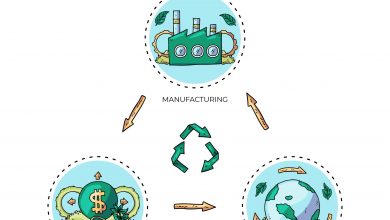6 Tips for Industrial Heating System Maintenance

Industrial heating systems are the lifeblood of any manufacturing or production plant. They ensure processes run smoothly, products are kept at the right temperature, and employee environments are comfortable and safe.
However, the complexity and power demands of these systems mean they require diligent upkeep to operate at peak efficiency, reduce operational hazards, and prolong their lifespan.
In this guide, we’ll walk through six essential tips for maintaining your industrial heating system.
Table of Contents
Use a Good Industrial Boiler
Your heating system’s foundation is critical, and when it comes to boilers, quality truly matters. Investing in a high-quality industrial boiler from a reputable manufacturer can significantly impact your system’s maintenance needs and efficiency. Here are some attributes to look for when selecting a boiler:
- High Energy Efficiency Ratings
- Quality Materials That Withstand Wear
- Modern Safety Features
- Servicing Accessibility for Parts Replacement
The initial cost of a high-quality system is an investment in the future of your heating setup – lower upkeep costs, fewer replacements, and optimized performance all play into the long-term value proposition.
Clean and Replace Filters
One of the simplest yet most effective ways to maintain your industrial heating system is to regularly clean or replace the filters. Filter systems are your first line of defense against unwanted particles and contaminants, which can build up quickly and lead to reduced air quality and system efficiency. Consider the following:
- Establish a Routine Check
- Know the Material Your Filters are Made Of
- Monitor Performance Closely
Filters should be cleaned or replaced as often as every month in high usage environments to prevent clogging. Clogged filters not only reduce airflow and heating/cooling capacity but can also contribute to mechanical stress and eventual failure of system components.
Check Thermostat and Controls
The thermostat is the user interface of your heating system, and it’s crucial to ensure it’s functioning accurately. Inaccurate temperature readings can lead to unnecessary heating and energy waste. Here’s what to do to keep your controls in check:
- Regular Calibration Checks
- Dust and Debris Inspection
- Battery Replacement if Applicable
A well-maintained and accurate thermostat can help control temperatures precisely, reducing the system’s on-off cycling, which can wear on components and uses more energy.
Inspect and Maintain Ductwork
Forced air systems rely heavily on ductwork to distribute heated or cooled air throughout the industrial space. Any leaks, blockages, or damaged sections can lead to loss of air pressure, dust buildup, and even hazardous conditions. Here’s how to ensure ducts perform optimally:
- Visual Checks for Leaks and Damage
- Regularly Scheduled Cleanings
- Proper Sealing & Insulation
Lubricate Moving Parts
Industrial heating systems usually have a multitude of moving parts – motors, fans, pumps, and more – all working together to ensure proper function. Over time, these parts can wear down without adequate lubrication. To keep them running smoothly:
- Follow the Manufacturer’s Lubrication Schedule
- Use the Right Type of Lubricant
- Check for Signs of Wear during Maintenance
Ensuring the system’s moving parts are well-maintained will minimize friction, save on energy, and reduce the need for unscheduled repairs.
Plan for Professional Servicing
While regular maintenance by your in-house team is vital, there are certain tasks that require the expertise of a professional furnace repair service technician. Industrial heating systems serve critical functions, and it’s best to leave complex repairs and maintenance to experienced professionals who can:
- Perform Precision Tune-Ups
- Conduct Safety Inspections
- Provide Emergency Repair Services
The frequency of professional service visits should be based on the system’s age, usage, and the manufacturer’s recommendation.




